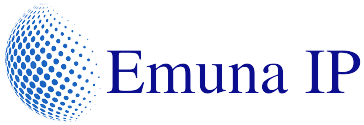In this article, we explore a distinct scenario in which it may be possible to circumvent liability for patent infringement under U.S. law. However, caution is advised, as the strategies discussed here are tailored to U.S. regulations and may not be applicable in other jurisdictions, such as Europe. This discussion is rooted in a detailed, fact-intensive examination of a particular legal exemption.

Introduction to Patent Infringement Liability
In the United States, the basic test for patent infringement is succinctly stated in the statute:
“… whoever without authority makes, uses, offers to sell, or sells any patented invention, within the United States or imports into the United States any patented invention during the term of the patent therefor, infringes the patent.”
35 USC 271 (a)
This introduction sets the stage for discussing a nuanced exception to this broad rule.
Statutory Foundation of Safe Harbor
Congress has carved out a specific exemption within the patent law framework, known as the safe harbor provision, which states:
“It shall not be an act of infringement to make, use, offer to sell, or sell within the United States or import into the United States a patented … solely for uses reasonably related to the development and submission of information under a Federal law which regulates the manufacture, use, or sale of drugs or veterinary biological products.”
35 USC 271(e)(1)
This exemption allows for certain activities that would otherwise be considered infringement to be permissible under specific conditions.
Case Study: Edwards Lifesciences v. Meril Life Sciences
This case illustrates the application of the safe harbor provision in a real-world context.
The courts looked at whether Meril Life Sciences’ actions—importing transcatheter heart valve systems for a conference without displaying or selling them—fell under this legal exemption.
“… This case concerns the seven-day trip of two transcatheter heart valve systems in and out of San Francisco to attend a medical conference. Once in San Francisco, however, the two heart valve systems did not attend the medical conference. Instead, they sat in a bag: first, in a hotel closet; then in a storage room—never displayed or offered for sale—before leaving the country to attend the next medical conference in Europe.”
Edwards Lifesciences Corporation, v. Meril Life Sciences PVT. Ltd., Case 2022-1877 (Fed. Circ. 25 March 2024) [Page 2]
The US District Court ruled by “… summary judgment in favor of Meril … that Meril’s act of importation of the two transcatheter heart valve systems fell within the safe harbor provision …” and then the Court of Appeals affirmed
Understanding the Safe Harbor Provision
The safe harbor exemption under Section 271(e)(1) is intended to facilitate the development and regulatory approval process for medical devices and drugs.
The courts have emphasized that the exemption applies
“as long as there is a reasonable basis for believing that the use of the patented invention will produce the types of information that are relevant to an FDA submission.”
This interpretation suggests a broad application, potentially extending even to activities with promotional aspects if they are consistent with data collection for FDA approval.
Practical Implications and Legal Advice
The Edwards Lifesciences v. Meril Life Sciences case underscores a very specific and fact-intensive scenario where the safe harbor provision of U.S. patent law can be invoked.
The Court is suggesting that, if you started the US FDA process, you can “non publicly” bring an otherwise infringing medical device to an International Trade Show to discuss with experts how to conduct medical trials.
Navigating the safe harbor provision requires careful legal consideration, especially when planning to bring potentially infringing products to the U.S. for demonstration.
This provision should not be interpreted as a blanket exemption for all importation and demonstration activities.
Bottom Line

Do not be cavalier. If you are seeking US FDA approval of a medical device that may be infringing another’s patent, check with your lawyer before bringing it to an International Trade Show in the USA, or before disclosing it to anyone.
Ensuring that all actions fall within the safe harbor’s limits can prevent significant legal complications.
